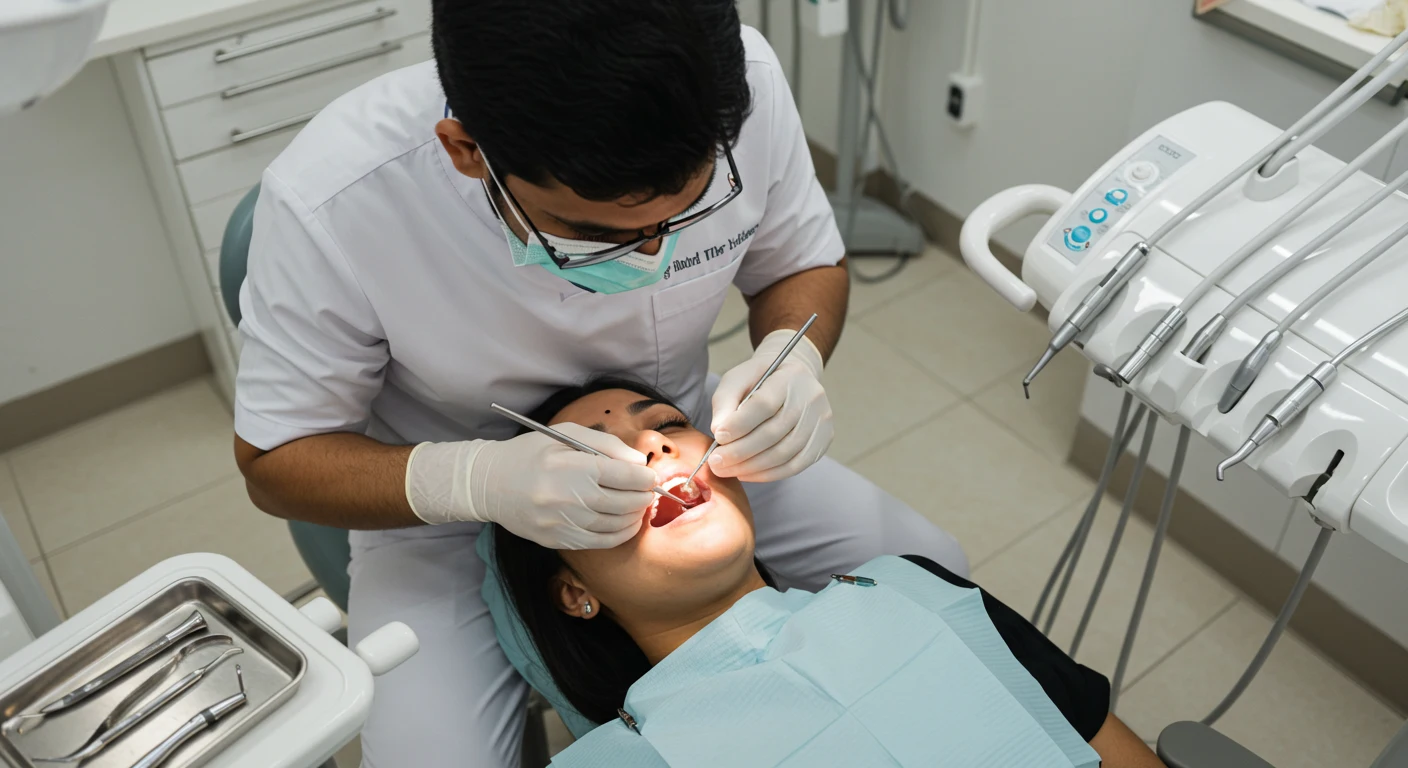What shouldn't you do after a Tooth Extraction?

Undergoing a tooth extraction can be necessary for oral health, but the healing process is just as important as the procedure itself.
Want a smooth and complication-free recovery? At Gums And Braces Dental Clinic, we understand the importance of making informed decisions to prevent discomfort, delayed healing or painful conditions like dry sockets.
Read on about the aftercare instructions — especially the things you should avoid. Here are some key things to avoid after a tooth extraction.
1. Avoid Smoking or Using Tobacco Products
Smoking is one of the most harmful habits after tooth extraction. It interferes with blood flow and healing, introduces toxic chemicals into the wound, and significantly increases the risk of dry socket — a painful condition where the protective blood clot becomes dislodged or dissolves too early.
Avoid smoking, hookah, or vaping for at least 72 hours after your procedure, or longer if possible. Tobacco products in general, including chewing tobacco, should also be avoided, as they can irritate the extraction site and delay the healing process.
2. Do Not Use Straws
Sucking through a straw creates suction in the mouth, which can dislodge the blood clot that forms over the extraction site.
This blood clot plays a vital role in protecting the underlying bone and nerve endings. Losing it prematurely can result in pain, bleeding, and an increased risk of infection. It's best to avoid straws for at least a week following your extraction.
3. Refrain from Rinsing or Spitting Forcefully
On the day of your extraction, avoid rinsing your mouth altogether. Beginning the next day, you can gently rinse with a saltwater solution, but be very careful not to do it vigorously.
Likewise, avoid spitting forcefully, as this can also disturb the blood clot. Instead, let any liquid gently fall out of your mouth without using pressure.
4. Avoid Hard, Crunchy, or Sticky Foods
Your mouth will be sensitive for a few days after the extraction, and consuming certain foods can cause irritation or even reopen the wound.
Hard, crunchy, or chewy foods can get stuck in the socket or poke the area, leading to pain or infection. Stick to soft foods like yoghurt, idli, mashed potatoes, soups (lukewarm, not hot), scrambled eggs, and smoothies (without a straw) for the first few days. Gradually reintroduce more solid foods as healing progresses, as your dentist advises.
5. Avoid Hot Foods and Drinks
Hot temperatures can interfere with the healing process by dissolving the blood clot. Avoid hot beverages, such as tea and coffee, as well as spicy meals, for the first 24–48 hours. Opt for cooler or room-temperature options to help the clot stay in place and promote comfort.
6. Do Not Touch the Extraction Site
It can be tempting to touch the area with your tongue or fingers, especially if it feels different or uncomfortable.
However, doing so can introduce bacteria, disturb healing tissues, and cause infection. Keep your tongue and hands away from the extraction site as much as possible.
7. Avoid Strenuous Activity
Are you a sporty person?
Physical exertion raises your blood pressure and can lead to bleeding at the extraction site.
For at least the first 24 hours — and ideally, 48 hours — avoid activities like heavy lifting, intense workouts, or bending over too much. Rest is one of the most effective tools in your healing process. You may need to avoid Yoga or Breath work as well, depending on the case.
8. Don't Skip Oral Hygiene — But Be Gentle
Keeping your mouth clean after an extraction is important, but be very cautious. Avoid brushing the area around the extraction site for the first couple of days.
You can continue brushing and flossing your other teeth, but use a soft-bristled toothbrush and take care not to disturb the wound.
After 24 hours, you may begin rinsing your mouth with warm salt water a few times a day, especially after meals. This helps keep the area clean without being too aggressive.
Need Help After a Tooth Extraction? Contact Gums and Braces for Expert Care
Healing after a tooth extraction depends heavily on what you don't do. By avoiding smoking, straws, certain foods, and physical exertion, you can protect the healing socket and reduce the risk of complications.
Contact your dentist immediately if you experience unusual pain, prolonged bleeding, or signs of infection such as swelling or fever.
At Gums and Braces Dental Clinic, we're here to guide you through every step of your dental journey — from treatment to complete recovery. For any post-extraction concerns, please don't hesitate to contact our friendly team.
